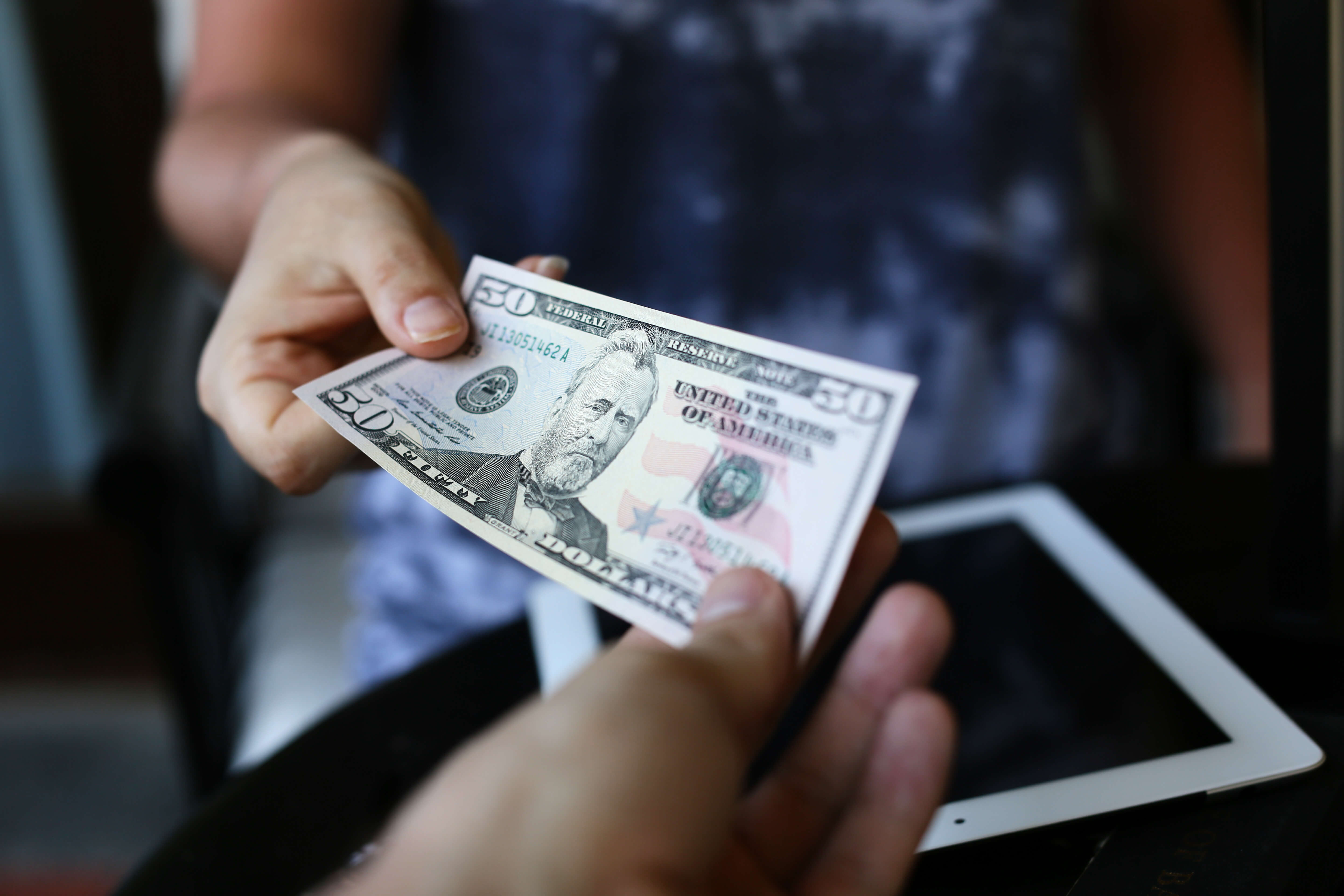Paying for stuff has some weird psychological effects on people. Paying a little extra to minimize these effects is economically efficient.
Happy and nerdy
Every Tuesday, before our evening class, two of my classmates and I grab some grub at a local eatery within walking distance of our campus. It has become our little tradition to get pumped up for our economics class. When the time comes for the check, the two whose turn it’s not to pay the bill excitedly look toward the one whose turn it is, with big cheesy grins on their faces.
Every week, we alternate who pays the whole check, and here’s a nerdy reason why:
Whenever we have to pay any amount of money, there is some psychological pain, also known as the “pain of paying” in behavioral economics. But, the pain doesn’t increase at the same rate the amount of money we must pay increases. So, if what we must pay goes from $15 to $30, our pain levels only go up a little bit, not twice as much. The pain of paying increases the most when we switch from paying nothing to paying something.
Say we assign a numerical value to our level of happiness. At the table, each of us has a happiness value of 10, making the total happiness at the table to be 30. If we all us pay for our own meals, each of our happiness levels are decreased by 5, bringing the total amount to 15. However, if one person pays the entire check, the happiness for that one person may only go down 6 points, while the other two happiness levels are intact making the total happiness of the table 24. That’s nine more happiness points!
Psychology of money
This idea comes from behavioral economist Dan Ariely’s book, Predictably Irrational. In his book, he describes different ways people make funny decisions with their money and go against classic economic models of decisionmaking. In one experiment with Ph.D. students, he would have a couple waiters at a restaurant offer the students a huge discount for their food. The students only paid a discounted price for every bite they ate. Whatever they didn’t eat would not be charged. On paper, this sounds great. But, the server had to watch and record every single bite taken to make sure the student was charged accurately. Though the students did end up paying less, they did so miserably.
Another way we are funny when it comes to money is how we feel when using cash versus credit cards. Why the plastic form of payment has become the number one way to pay for stuff is no surprise. The only time we prefer to use cash is when we’re buying a coffee or a Big Mac.
When we use cash, the opportunity cost of what we’re paying is much easier to think about. We look at the cash and start thinking of the alternative uses we could be putting this cash toward. Credit cards block these dirty thoughts. They also reduce the hassle of carrying around the cash, counting through it and holding the change from it all.
Financially beneficial versus economically beneficial
We can see the problems that arise from this behavior. By using credit cards, we forgo thinking about the hidden costs, such as opportunity costs, thus making it much easier to spend our hard-earned money. Also, it might not be all that financially beneficial to alternate between who pays the whole tab with a group of friends.
However, credit cards have become much more attractive by offering great reward systems such as cash back and travel points. If used correctly, using credit cards might be financially savvy. It can help build your credit and get you a free stay at a hotel one day. I don’t see my dollar bills offering me those kinds of deals.
But, economically, it’s not just about tangible costs. In economics, we account for intangible costs such as happiness, the cost of our time and other hidden costs because we are, in fact, humans. Human emotions play an important role in costs. If by using credit cards or paying the whole tab helps minimize those non-monetary costs, then so be it.
So, though we may end up paying a little more down the line, sometimes, our happiness is worth the extra couple bucks.
Have something to add to this story? Comment below or join the discussion on Facebook.
Header image: Adobe Stock










































